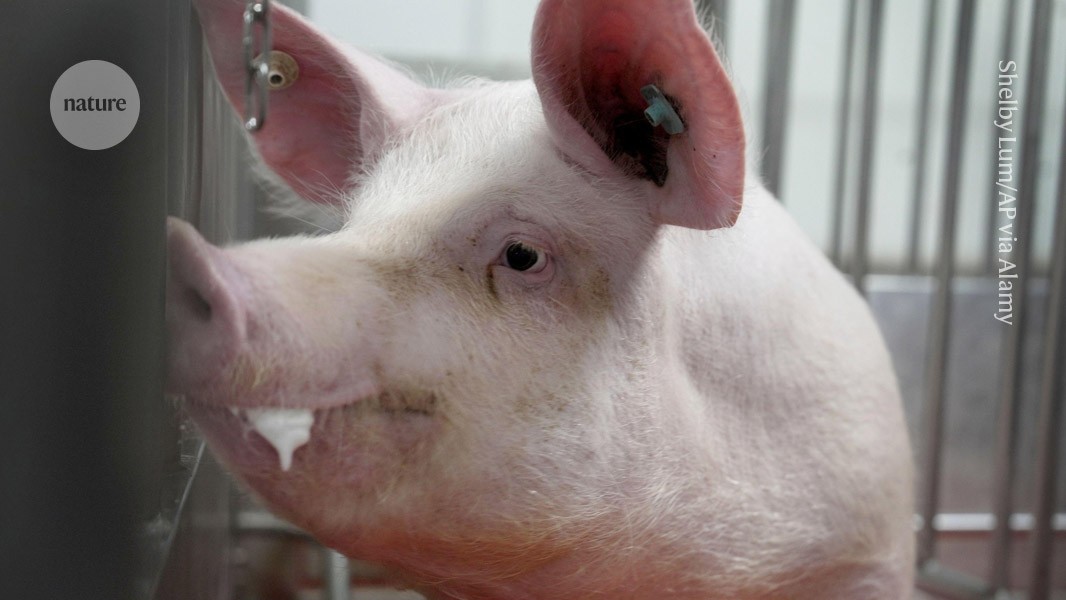Pig livers for people: US regulator greenlights first safety trial

Four people with liver failure will be connected to an external organ from genetically modified pigs

Pigs bred for animal-to-human organ transplant experiments are usually genetically modified to reduce the chance that the recipient’s immune system will attack the organ.Credit: Shelby Lum/AP via Alamy
The first trial to test whether genetically modified pig livers can be used safely to treat people with organ failure has been approved by the US Food and Drug Administration. As part of the trial, people with severe liver failure who are ineligible to receive a human organ will be temporarily connected to an external pig liver that will filter their blood.
The trial is a huge step forward for the field of xenotransplantation — the use of animal organs in people — and for people with a serious form of liver failure that has a mortality rate of about 50%, says Wayne Hawthorne, a transplant surgeon at the University of Sydney, Australia. This shows that decades of research have been worthwhile, he adds.
A clinically dead man in the United States was the first person to be connected to a pig liver outside their body, in late 2023. About half a dozen people in the United States and China have received other organs from genome-edited pigs. These surgeries were approved for terminally ill people on compassionate grounds, and most did not survive beyond a few months.
Four individuals will be included in the initial phase of the trial of the pig liver, due to begin later this year, according to the companies running the trial: eGenesis, a bioengineering firm based in Cambridge, Massachusetts, and OrganOx, a biotechnology company based in Oxford, UK. eGenesis and OrganOx were both also involved in the 2023 surgery. The trial will include people aged 10–70 years old who have acute-on-chronic liver failure, a sudden worsening of chronic liver disease, and hepatic encephalopathy, a brain disorder caused by impaired liver function. Over a 2-week period, participants will be connected to the pig liver for 72 hours; their blood will be sent through the organ to remove harmful waste products that build up during liver failure. Participants will then be monitored for a year for safety and changes in liver function. The organs have been genetically modified to make them more compatible with humans.
Hawthorne, who is a former president of the International Xenotransplant Association, says the pig liver will act as a bridging graft to keep people with severe liver failure alive, and hopefully to give their livers time to regain some function.
Safety review
Enjoying our latest content?
Login or create an account to continue
- Access the most recent journalism from Nature's award-winning team
- Explore the latest features & opinion covering groundbreaking research
or
Sign in or create an accountdoi: https://doi.org/10.1038/d41586-025-01209-6
This story originally appeared on: Nature - Author:Rachel Fieldhouse


















